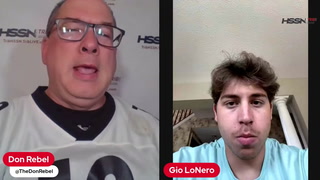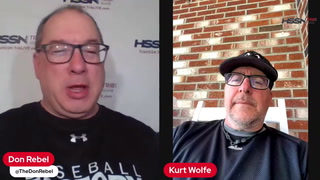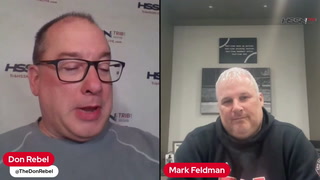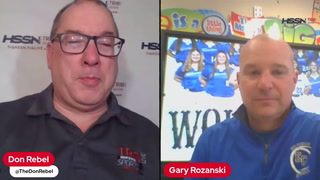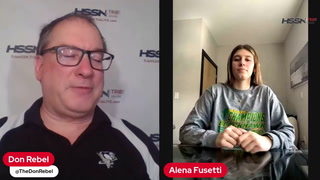Public school administrators call for separate playoffs at PIAA Playoff Equity Summit
By:
Tuesday, July 24, 2018 | 1:15 PM
STATE COLLEGE — If the PIAA board of directors wanted, could it legally split public and private schools into separate playoffs?
PIAA executive director Bob Lombardi has consistently said no, citing a 1972 law that forced Pennsylvania’s high schools together into one state association. But the public school administrators who organized Tuesday’s PIAA Playoff Equity Summit say yes, and hope to soon have an independent interpretation to bolster their position, New Castle superintendent John Sarandrea said.
“This body here has to get an independent legal opinion about 1972 and the rules,” said Sarandrea, a WPIAL board member and one of the summit’s organizers. “Because I will tell you that the (State Athletic) Oversight Committee members that I spoke to, they have emphatically said that the PIAA is allowed to create separate playoffs. Those were emphatic words. They said there was nothing in the law that prohibits that from happening.”
Sarandrea said his group will reach out to both the Pennsylvania School Boards Association and the Pennsylvania Association of School Administrators for feedback.
“It’s an important next step,” he said. “I think that can happen as soon as this coming week.”
More than 200 public school administrators attended Tuesday’s meeting at the Ramada Hotel & Conference Center, the latest tactic in a debate that has worn many names: public vs. private, boundary vs. non-boundary, or traditional public vs. schools of choice.
The group met for three hours.
“Just looking out, I got goose bumps with this crowd,” said Laurel superintendent Leonard Rich, an early advocate for separate playoffs. “In March, it was a conversation. In late July, here we are. Over 30 percent of the PIAA membership came because they feel that there is an injustice toward their student-athletes.”
Rich said more than 150 school districts were represented, which accounted for more than 375,000 students. In all, the state has 500 public school districts.
Some were there Tuesday merely to gather information, but many in attendance felt that their sports teams faced an unfair disadvantage when forced to face private, parochial and charter schools. They cited the recent dominance of non-boundary schools in the PIAA basketball finals.
Among the solutions raised, the group discussed what Sarandrea called “the nuclear option,” the idea that Pennsylvania’s public school districts could someday secede from the PIAA and form their own state association. The administrators weren’t asked to vote on possible secession, but a majority of attendees did raise their hand to support separate playoffs.
A majority also indicated that the PIAA transfer rules enacted last week were not adequate
“Are those changes the answer? No,” Central Cambria superintendent Jason Moore said. “ … The real answer is right in front of everybody’s face.”
Among those who wanted to split public and private schools, a consensus favored separate playoffs for all sports, not only football and basketball.
The event was organized by Sarandrea, Rich, Moore, Central Cambria principal Chris Santini, Millcreek superintendent Bill Hall, Portage superintendent Eric Zelanko and athletic director Jeremy Burkett, and Harmony superintendent Stuart Albaugh.
In response Tuesday, the PIAA issued a statement that said in part: “Much of the information included in today’s presentations has been discussed by the Board, of which the overwhelming majority are public school employees.”
That discussion would include the implications of House Bill 2104, the state legislation from 1972 that says: Private schools shall be permitted, if otherwise qualified, to be members of the Pennsylvania Interscholastic Athletic Association.
Lombardi has said the law made private schools full members and therefore cannot be treated differently than public schools. He reiterated that stance after last week’s PIAA board meeting.
“We believe it’s contrary to the law,” said Lombardi, who was not invited to Tuesday’s summit. “If the legislature wants to change, we will follow the legislation and do whatever they say. The (PIAA) board has discussed it upside down, inside out, many different proposals and ideas. But they’re not going to violate the intent of the law that says we’re going to take private schools as full members of PIAA.”
Sarandrea insisted Tuesday that the PIAA is hiding behind the law.
“Independent attorneys have already spoken to me about it, and they’ve reviewed it,” Sarandrea said. “They haven’t written down an opinion as far as professionally, but they all agree there is nothing in there that prevents the PIAA from coming up with a separate playoff system – if they desired.
“(State Rep. Rob) Matzie said it. (State Sen. Jay) Costa said it. They both said it,” Sarandrea added. “They both have legal counsel. Both made the statement very plain and very simple: There’s nothing in that law that they can see. … I would have more respect for the PIAA if they just came out and said: ‘Yeah, we can do it, but we don’t want to.’ I can live with that.”
Chris Harlan is a Tribune-Review staff writer. You can contact Chris at charlan@tribweb.com or via Twitter @CHarlan_Trib.
More High School Other
• High school scores, summaries and schedules for April 22, 2024• High school sports schedules for April 22, 2024
• Penn-Trafford notebook: Warriors boys track looks to build off Wildcat Invitational win
• Penn Hills rugby program adds girls team
• High school scores, summaries and schedules for April 20, 2024




